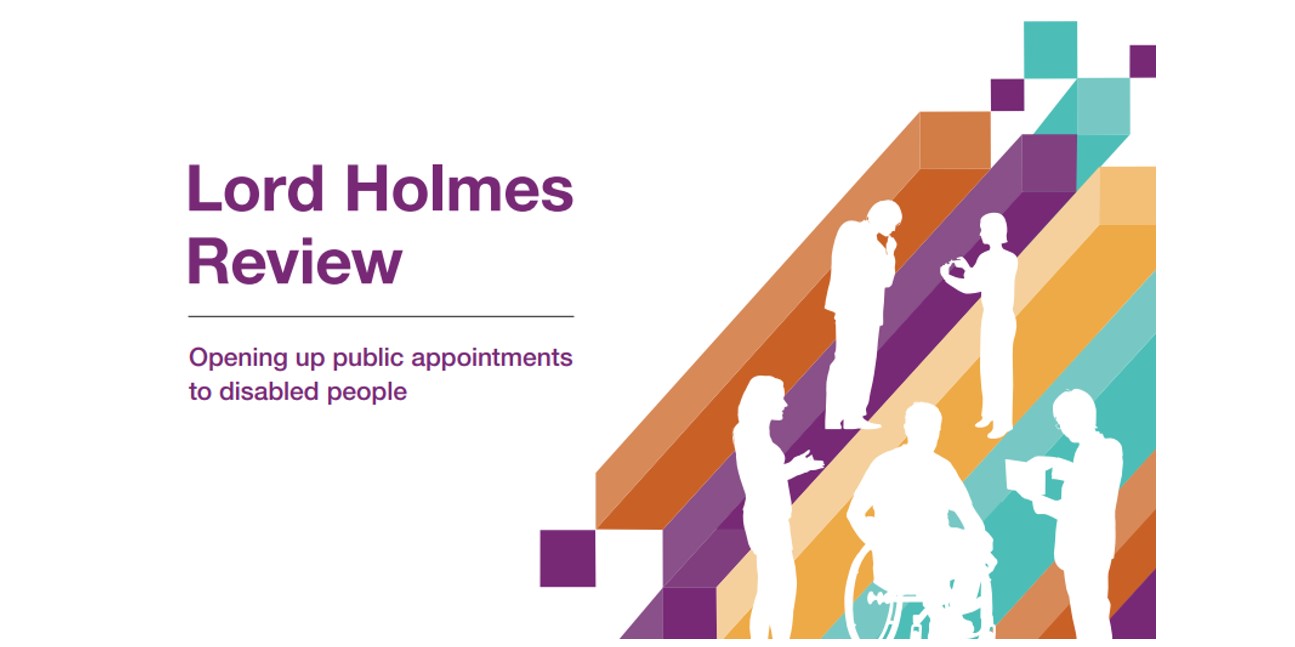Commissioner’s Response to the Lord Holmes Review
Wednesday 5 December 2018

The Lord Holmes review published this week has forcefully highlighted the need to open up public appointments much more for disabled people – challenging the Government and public bodies to take action. As advocate for diversity in appointments, I warmly welcome both the analysis in the review and the thrust of the main recommendations. A ministerial response is promised by the spring. But what is required to translate the moral case for addressing the big under-representation of those with disabilities of many and different kinds into real and measurable improvements?
Good intentions are not enough. As the Holmes review suggested, the response involves both specific actions by departments and public bodies and, in many ways more difficult, changes in attitude. The challenge is to adapt the existing system to one which maintains the core principles of treating applicants equally, whilst recognising experience from non-traditional backgrounds. The traditional appointments framework has often been described as designed for professional (white) men in their late 50s and 60s nearing retirement who have the obvious experience and skills to join a board. But public sector boards need not be, and should not be, of one character. All the evidence shows that having people with a wide range of backgrounds and experience means boards function better and are more in touch with the people they serve.
First, the Government needs to attract and nurture talent and that means knowing where to look. There has already been progress in trying to develop networks amongst under-represented groups of all kinds, moving away from the belief that applicants will simply look at the Cabinet Office website to using social media to reach a broader range of people. That is needed to overcome the frequently asked question of what public appointments are and whether they are for people like them. That means giving prominence to disabled role models, a number of whom spoke at the launch of the Holmes review.
Second, looking further and harder, as the Holmes review puts it, is only part of the story. The Government needs to make clear that non-traditional types of experience are valued. There has already been a shift away from a conventional ‘tick-box’ of requirements for job and person specifications to looking more broadly at skills and experience. But departments need to go further in overcoming doubts by demonstrating openness to disabled applicants and making the necessary adjustments, both formally and in respecting and valuing those applying who declare a disability. It is part of building up trust and confidence.
Third, ensuring that interview panels make the necessary adjustments to accommodate the needs and concerns of disabled applicants in order to enable them to compete fairly with other applicants. That might also mean looking at other means of assessment, rather than relying just on a simple panel interview. The Governance Code’s principle of fairness is not a bar to innovation, as long as all candidates for a post are assessed on the same criteria.
These add up to big challenges for already stretched departments which will themselves have to adjust their approaches – in, for instance, finding more disabled people to join assessment panels, notably as independent members. There is a case not just for a strong lead from the centre but also for more collaboration between departments to build up networks, understanding and expertise.
There are other points too – about the quality and collection of data which I will address in a subsequent blog, and about remuneration and expenses, which the Holmes review identifies as a deterrent to disabled applicants. One of the striking features of the review is that most of the points Lord Holmes makes about people with disabilities also apply to black and minority ethnic groups – underlining the need for strong ministerial and civil service leadership to bring about greater diversity.
If you would like to find current public appointment vacancies, please use the following link.
https://publicappointments.cabinetoffice.gov.uk/search-appointments/

